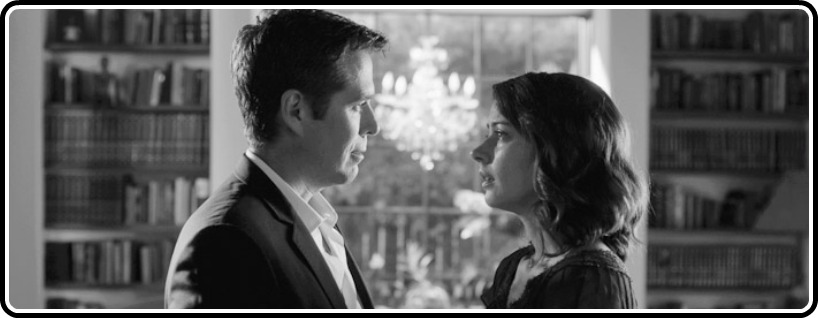
Right off the bat, I’m going to admit something to all of you while I have you here. I’m a Whedonaholic. I’ll make no effort to hide that before I review this film. I’m a big fan of the Buffy/Angel universe, I’m a Browncoat lover, Cabin in the Woods was my favorite film last year, The Avengers was exactly what I wanted from a big budget comic book movie, Dr. Horrible’s Sing-Along Blog was something I actually bought from iTunes when it came out in 3 episodes because I needed to see it day one when it came out… it’s kind of an endless love. Hell, I even like listening to the guy speak about women’s rights, comics, and various other topics. So when I heard he was doing a Shakespearean adaptation of one of my favorite plays, Much Ado About Nothing, I kind of thought it was a match made in heaven. Geeky heaven. But instead of rushing out a review the moment I saw an advanced screening of it, I decided to take it all in, re-read the play, watch a few other adaptations, and then see it with an audience of other Whedon fans, not just critics, to get the full effect.
A tale of romance, family betrayal and trickery, Much Ado About Nothing tells the story of two pairs of lovers, Benedick (Alexis Denisof) and Beatrice (Amy Acker) and Claudio (Fran Kanz) and Hero (Jillian Morgese) and the trials and tribulations they are going through. One is a past love that looked to be over (Benedick/Beatrice) but due to friends and family sprinkling good word and falsities to each without the other knowing, they love they have comes to blossom again. The other is a new love (Claudio/Hero) who have found one another and decide to marry one another right away (even though it takes place in the ‘present’ day, this little tidbit is part of the plot). Unknown to Claudio, Don Pedro’s (Reed Diamond) brother Don John (Sean Maher) is plotting to ruin the marriage to be between Claudio and Hero, first trying to convince Claudio that Don Pedro wants her hand in marriage and when that doesn’t work, he has one of his follower Borachio (Spencer Treat Clark) woo the chambermaid Margaret (Ashley Johnson) and beds her while calling her ‘Hero’. Claudio witnesses this from afar, assuming his love has betrayed him.
At the wedding, Claudio denounces his love for Hero, calling her a slut in so many words. And thus begins another series of events that Hero’s father Leonato (Clark Gregg) and Benedick (at the begrudging of Beatrice) to challenge Don Pedro and Claudio for the death of Hero, a lie put into motion to get to the true bottom of everything and why Claudio even accused her of infidelity in the first place. Rounding out the jester’s part is Dogberry (Nathan Fillion), a ‘fool’ who is trying to get to the bottom of the crime(s) that have been committed and also to lighten the load of some of the heavier themes presented throughout the play.
It’s a tough thing to adapt Shakespeare in the present day, primarily because of certain thematic choices and the use of language put forth. Some adapt without the use of language but central ideas (10 Things I Hate About You which is an adaptation of The Taming of the Shrew) and some go full force with the Bard’s words, hook, line and sinker (Baz Luhrman’s over produced and ‘hip’ Romeo and Juliet being one example). Some work for me and some don’t, but it’s a matter of execution and opinion. Joss Whedon has made a film that not only takes from the source material, but from screwball comedies of the 1940’s (Bringing Up Baby and Arsenic and Old Lace coming to mind) with a hint of Three’s Company while shooting the film in black and white (budgetary reasons and/or aesthetic?) and having your friends over at your house (it’s Whedon’s actual house) makes for a great exercise, a fun excuse to make a film. Is it game changing? No, but it sure is a fun time, especially when the words don’t feel forced (for the most part).
Fillion, Acker and Denisoff in particular are aces with their parts, really getting the language and how it moves to a certain beat. Gregg is no slouch as well, but Leonato’s role goes by the wayside soon after the first half hour or so. Everyone else is serviceable for the roles they play and ultimately makes for a breezy runtime (even though it’s 107 minutes). I can’t wait for the home video release where we can get a fun commentary track from Whedon and company, speaking about the fast movie making process with this film and how they got it all done in a short amount of time. I’m guessing all laughter and no horror stories on this shoot, so no drama on the making of featurettes.
Much Ado About Nothing was a joy to watch twice. Once was an eye opener, giving my Whedon fix just what I needed. But the second time I saw more to the play than I saw the first time, which is always a great sign with any of the Bard’s adaptations. This film has even been reviewed twice before, once by Joshua Brunsting at SXSW and last week by Scott Nye when it came out last week. I had written out a review the day I saw it but I’m glad I gave it some time to rest and see it a second time, to fully flesh out an opinion and not just a fanboy approach. Check it out if it’s in your neck of the woods.



